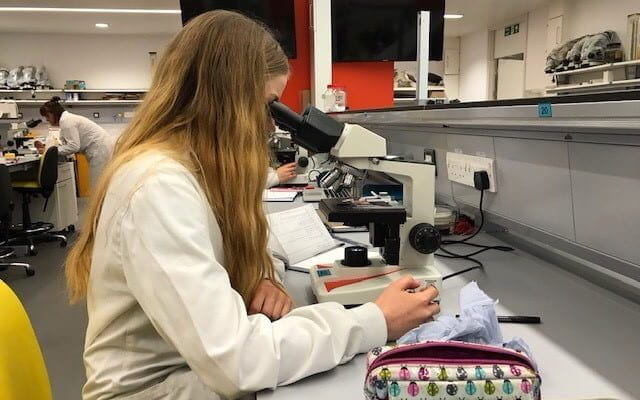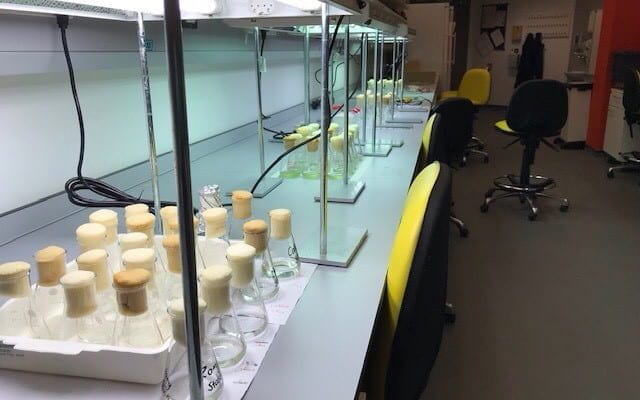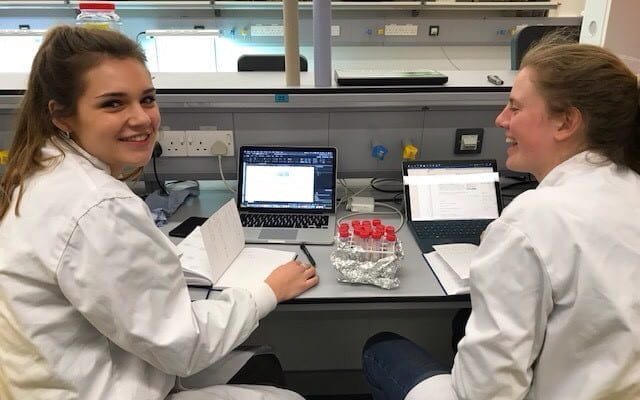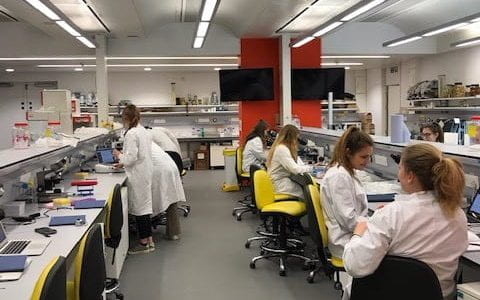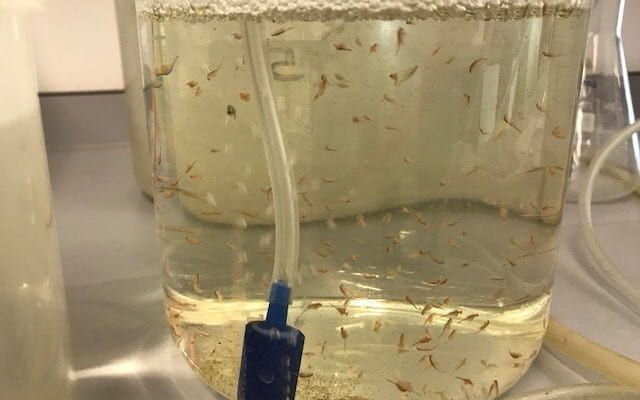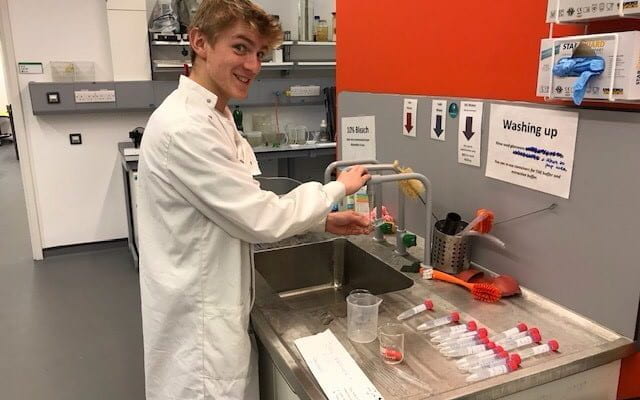During the second week of April, 11 biological sciences undergraduates undertook the challenge of becoming ecotoxicologists during the a field course lead by Professor Marian Yallop and Dr Gary Barker. Ecotoxicology is the study of toxic substances on biological organisms and the students had the responsibility of choosing their topic, designing their experiment, conducting the experiment, collecting the data, analysing the data and presenting their findings…all within a week!
The week kickstarted with a great lunch at Cosmos and a lot of discussion on what the students were going to research. By the end of the first day the students had decided to look at the ecotoxicology of pesticides and nanoparticles on microalgae, the effects of UV-C on microalgae, and the effects of UV-C on marine and freshwater plankton.
By day 2 everyone was preparing all of their equipment, toxic substances, algae and plankton. Day 3 and 4 consisted of data collection including cell/plankton counting, using PAM to measure cell health and chlorophyll analysis. On the last day the students finished up their data analysis and created presentations on their research findings. Each group presented their findings and displayed very interesting results. They found that the pesticides and nanoparticles inhibited algal cell growth, UV-C repelled some planktonic species but not others, and UV-C provided some short-term inhibition of algae.
Overall the undergraduates gained some great experience in the MSci laboratory; they became very independent and were very well organised, they learnt the correct aseptic technique, quickly picked up how to plan an efficient experiment, stuck to time-constraints, conducted experiments correctly, understood the data they had collected and presented their findings.
The students showed so much enthusiasm throughout the week and we were all very happy with the outcome! Well done ecotoxicologists and good luck with writing up your reports!
Written by Katie Wojcik, Demonstrator, School of Biological Sciences


